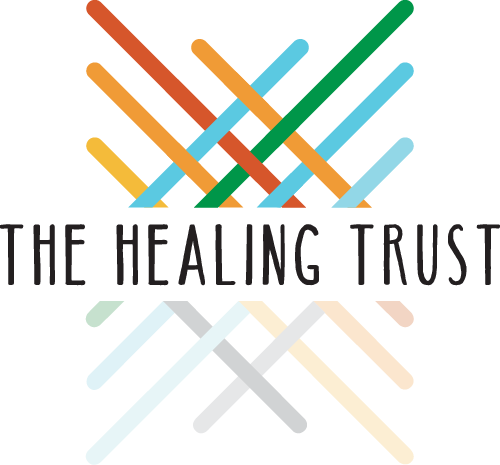In many non-profit and ministry settings, employees need a diverse skill set. Working on the ground, especially in communities where resources are limited, requires wearing many hats and being prepared for the unexpected. I came to my internship at The Healing Trust as a third-year divinity school student, with experience in community organizing, chaplaincy, and congregational ministry. Although I have had the opportunity to develop skills in care-giving and social justice movement building, I was lacking in skills around grant-writing and non-profit management. Through my internship, I have been immersed in the foundation world, an important facet of the non-profit community that previously I had little interaction with. Here are 5 things I have learned from The Healing Trust!
1. Self-Care is part of workplace culture.
One of the best parts about working at The Healing Trust has been their commitment to self-care in the workplace. Previously, I had imagined self-care as an individual task that happens off the clock (hello, pre-bedtime bubble bath). But, it’s also important to have the support you need while at work. We spend most of our day at our jobs, and all of our stress, anxiety and exhaustion is with us there, too. The Healing Trust takes self-care seriously, from offering Cultures of Compassion grants to making sure the staff is supported. I’ve been inspired by how compassion is included in its business practices, like making sure team mates are supported and listened to, providing resources for physical wellness, and helping one another maintain sustainable work-life balances.
2. Foundations can do more than just give out money.
Beyond grant making, The Healing Trust has a full slate of programming including workshops on grant writing, advocacy, and technical assistance. It has been interesting to see The Healing Trust think of ways to work with grantees that goes beyond financial support, and made me realize all the potential foundations have to be a key part of the causes that they fund. Foundations can be places of convening, where different sectors of the nonprofit community work together.
3. The Healing Trust has an amazing community of partners.
From THT’s dedicated board members to the amazingly talented staff at the nonprofit partners, there is an incredible community of visionaries, leaders, and activists that THT is connected to. So many different people come through the doors of the THT’s office, for retreats, planning meetings, and workshops, and it has been a great way to meet people that I can learn from. One of my favorite parts of being an intern is going on site visits to THT’s grantees, and getting to see first-hand the work that nonprofits in Middle Tennessee are doing.
4. Grant writing requires both research and storytelling.
Before interning at The Healing Trust, I knew that a good grant application included compelling narratives about the importance of a project or a non-profit’s mission. But I am now learning that good projects also need to evaluated and measured for their success. Creating strong outcomes on a grant application can be really difficult! It involves in-depth research and well-designed programs. As I look ahead to careers in non-profit management, I am grateful to learn what goes in to making projects successful and fundable.
5. Foundations consider both the present and the long-term reality.
Foundations pay attention to proposals and program design, as well as the needs of the community. They also think about how their funding will affect the landscape of nonprofits and the long-term impact their investments will have. Foundations like The Healing Trust work with their nonprofit partners to determine how to create sustainable initiatives and innovative solutions that will help this generation and the next generation.
I am grateful to be part of this community! From workplace culture, to professional skills, to nonprofit know-how, my internship with The Healing Trust has been an excellent learning opportunity. Learn more about The Healing Trust’s internship opportunities.
Drew Bongiovanni is a third year student at Vanderbilt Divinity School.

